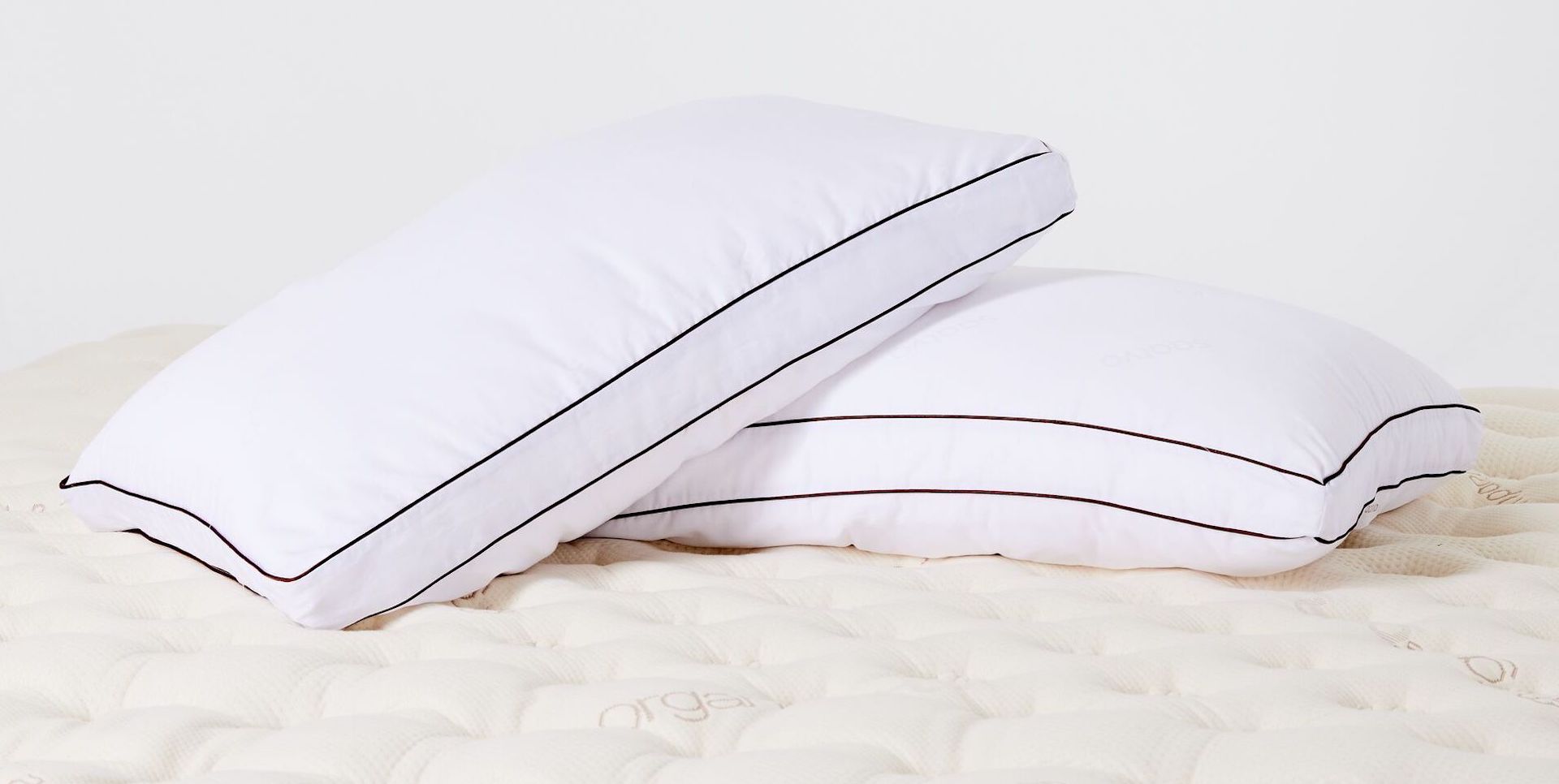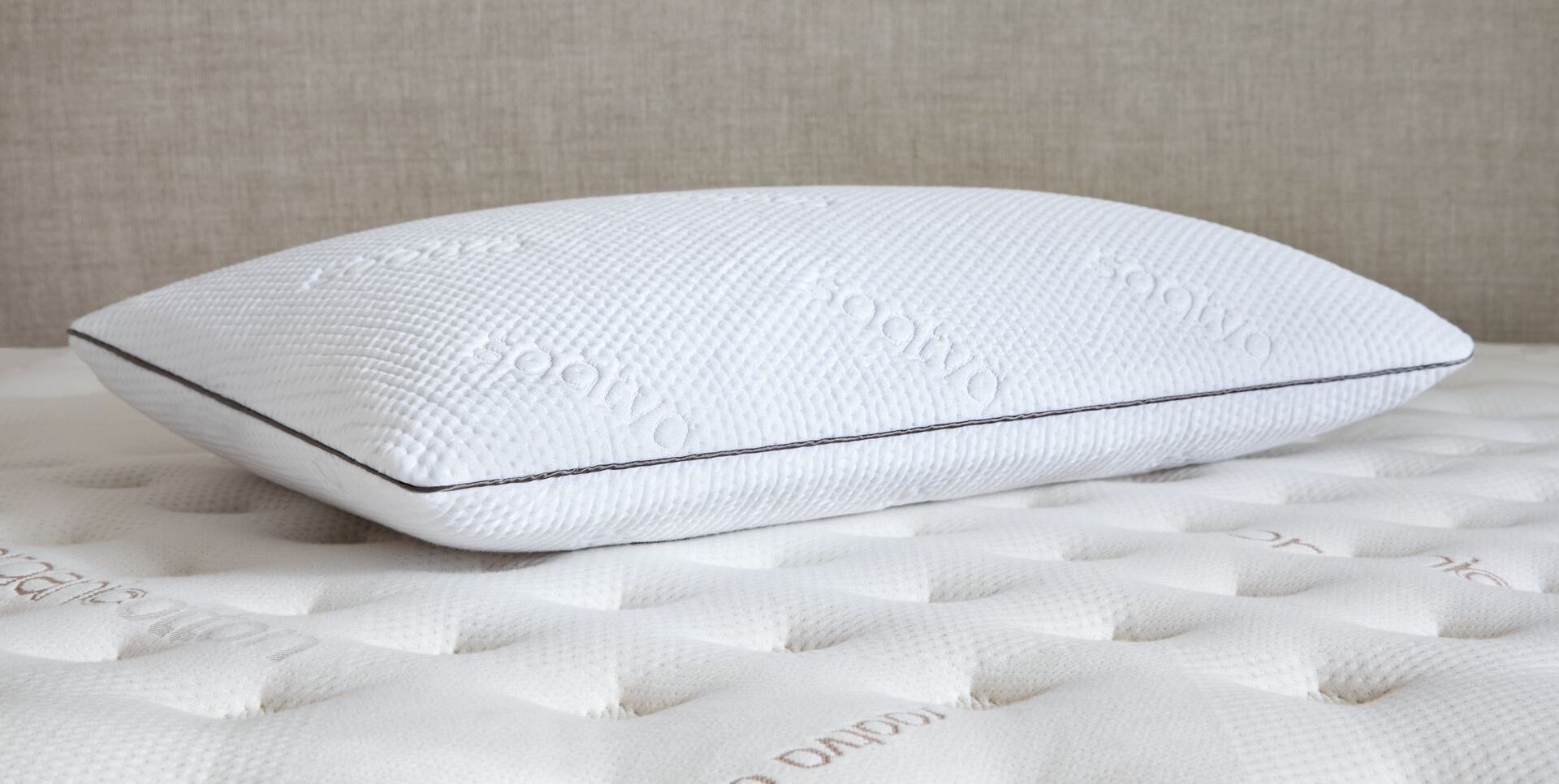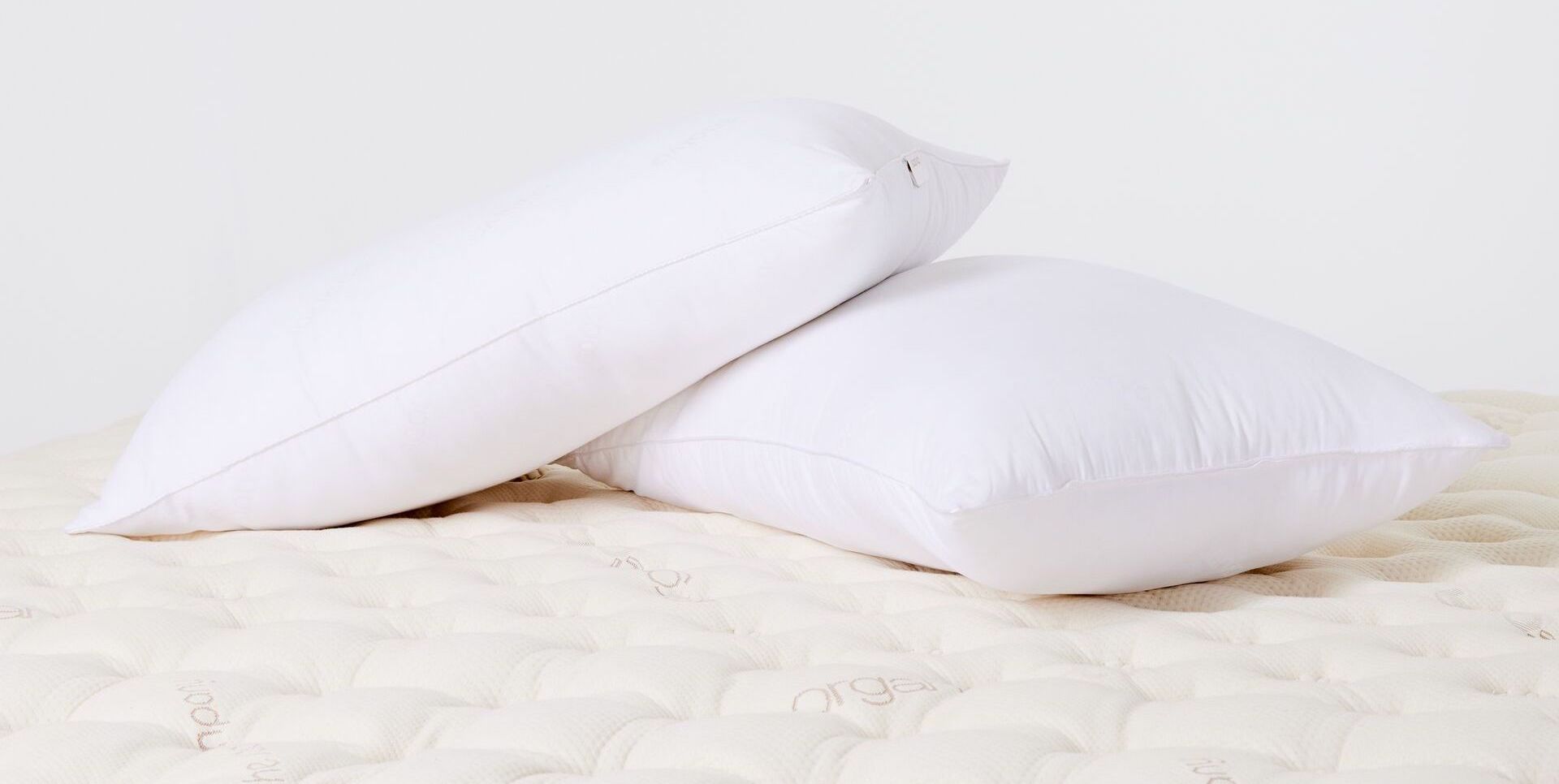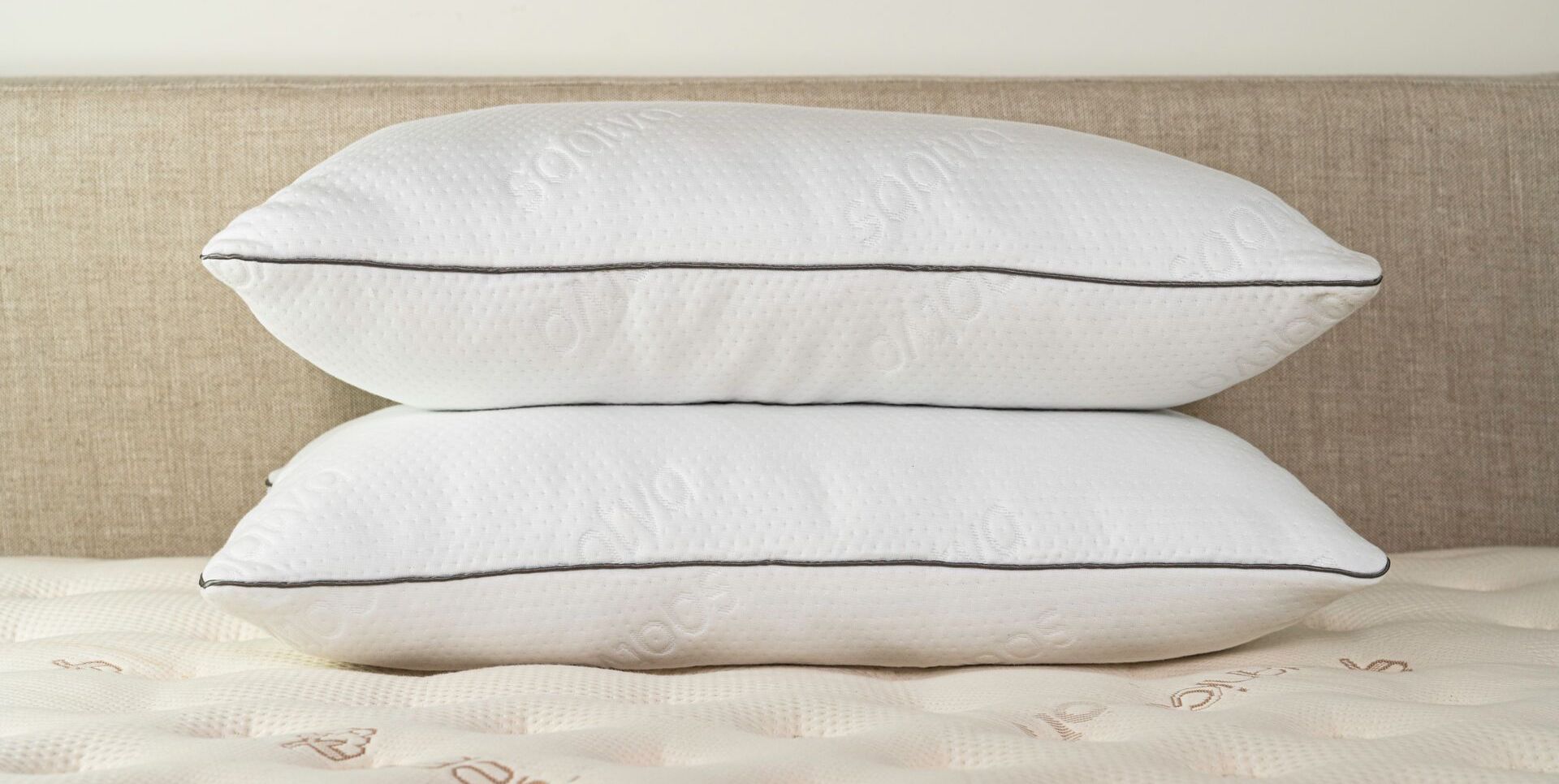We all need to sleep, but some of us living with one chronic health condition or another can have a harder time than many at getting our shut-eye.
If that sounds like you, then you will be glad to know that, besides choosing the right mattress, the pillows you select also will help to make or break your good night’s sleep.
Here are a few tips for picking the right pillow for your best rest.
The best pillow for back pain
Gregory Funk, chiropractor and owner of Ideal Health Chiropractic in Denver, says that your best pillow if you suffer from back pain depends on your sleep position:
- Back sleepers: Funk says a medium firm, medium thick pillow is best to keep your head, neck, and spine properly aligned. A small pillow under your knees also will reduce pressure on your lower back.
- Side sleepers: You need a thicker, firmer pillow. “It needs to be able to bridge the gap between your shoulder and ear while on your side,” says Funk, “which will retain the neutral alignment of the spine.” Again, another pillow between your knees will further ensure spinal alignment.
- Stomach sleepers: Look for thin, soft pillows, which will reduce the strain on your neck. “Since this position offers the least amount of support for your lower back,” Funk says, “you want to reduce the strain on your neck as much as possible.” In fact, he adds, “you may even be able to sleep without a pillow at all.”
Learn more about how many pillows you should sleep with if you have back pain.
The best pillow for neck pain
To help relieve neck pain you need a type of pillow that keeps your head in a neutral position, with your neck perfectly aligned with your spine. It should fill the “gap” between your neck, head, and back even when you move during sleep. It should be durable and breathable, with a cover that has a 400 thread count or less; anything higher traps body heat. And it should have the right type of fill for your needs.
Is your pillow past its prime and causing you neck pain? Here’s how to get rid of old pillows.
The best pillow for shoulder pain
Tom Tozer, chiropractor at Wisconsin’s Imperium Chiropractic, says that finding the perfect pillow can be challenging, but it’s an effective way to relieve shoulder (and neck) pain. The right pillow for you will depend on what position, or positions, you sleep in.
If you are a back sleeper, “I recommend an orthopedic or contour pillow,” says Tozer. “These will offer the proper neck support.” For the side sleeper, he says, “You need a thick enough pillow to fill in the space between your head and the bed, making sure you keep your neck in line with your body.” As for the stomach sleeper, Tozer says that although he doesn’t recommend the sleep position, “the best-case scenario is to use a thin pillow.”
Learn more about choosing the best pillow stuffing to relieve pain while you sleep.
The best pillow for hip pain
There are many different reasons people experience hip pain, and treatment will vary depending on the underlying condition. Osteoarthritis, the most common type of arthritis, can create dull aches, or a feeling of grinding or burning usually on the inside of the hip or in the groin area. If it’s a soft-tissue problem, an inflamed ligament, tendon, or muscle is the likely cause of aches around your buttocks, upper thigh, and outer hip. Nerve pain usually affects only one hip and can be dull or very sharp. If it’s bursitis, you may feel sudden, shooting pain, swelling, or redness if the hip joints’ jelly-filled sacs become inflamed.
To relieve hip pain, some doctors recommend placing a pillow between your knees while sleeping on your side. Firm, thick pillows are best for the job of supporting your legs to align your spine and hips. A contoured pillow makes it even easier to keep the pillow in place.
The best pillow for snoring
A wedge pillow is exactly what its name suggests, a pillow shaped like a wedge. These pillows are made to support side sleepers in an angled position. They are built using materials that are both supportive and contouring to hold the body in place, in spinal alignment, and also help keep the airway unobstructed.
They are usually quite large, measuring at least a couple of feet wide and long, and provide a gradual incline for the upper body. Wedge pillows can be very helpful with snoring by supporting the upper body, neck, and head to prevent soft tissues from blocking airway passages.
The best pillow for sleep apnea
If you have sleep apnea, WebMD says that sleeping on your back with your body elevated from the waist up may help keep your airway from collapsing and, in turn, improve your condition. Use foam wedges, not soft pillows. Sleep apnea pillows that can be used without a CPAP machine keep your neck positioned so your airway is more likely to stay open. Those made to be used with the CPAP machine are designed to make you more comfortable while wearing the mask.
The best pillow for acid reflux
Some of the most commonly prescribed ways to prevent acid reflux from ruining your sleep are to stop eating and drinking three hours before bed, avoid trigger foods and drinks, make lunch your biggest meal of the day, wear loose pajamas, and try to sleep on your left side.
It’s also helpful to elevate your head in bed. The Mayo Clinic suggests inserting a wedge between your mattress and box spring to elevate your body from the waist up. You can also achieve this either with an adjustable base or with a wedge-style pillow.
The best pillow for pregnancy
Pregnancy pillows are designed to ease the aches and re-proportioned body of expecting women. They come in a variety of shapes and serve a number of different needs.
- Wedge pillows are ideal for pregnant women experiencing heartburn. Sleeping with your head elevated on a wedge pillow can help ease heartburn by preventing stomach acids from entering the esophagus.
- Knee pillows, or contoured wedges, keep your upper and lower legs aligned when you sleep on your left side in particular—which can help you avoid shortness of breath, and may improve blood flow to your baby.
- Body pillows are narrow pillows that may be straight or flexible and run the length of your body. They’re meant to be hugged as you sleep. You can tuck a body pillow beneath your belly for extra cushioning and support and place it between your thighs to keep your hip aligned.
- C-shaped pillows are a good choice for side sleepers, as you sleep inside the C with your head resting on one end and the other end placed between your knees. Face the back of the pillow to support your belly or face the opening of the C for back support.
- U-shaped pillows offer excellent belly and back support. Place the U upside down on your bed and lie on your side inside it with your head at the top. This is a good option if you usually sleep on your stomach or back because it helps maintain a side sleeping position throughout the night. Like wedge styles, U-shaped pillows can be repurposed as nursing pillows after you give birth.
The best pillow for allergies
There are plenty of things you can do to allergy-proof your bedroom. Besides keeping allergens out, another important step is to choose a hypoallergenic, antimicrobial, mildew-proof, and dust mite-resistant pillow. Memory foam and natural latex are two good options—both are hypoallergenic and resistant to dust mites.
Do you sleep hot? Here’s how to choose the best pillow for a cool night’s sleep.












